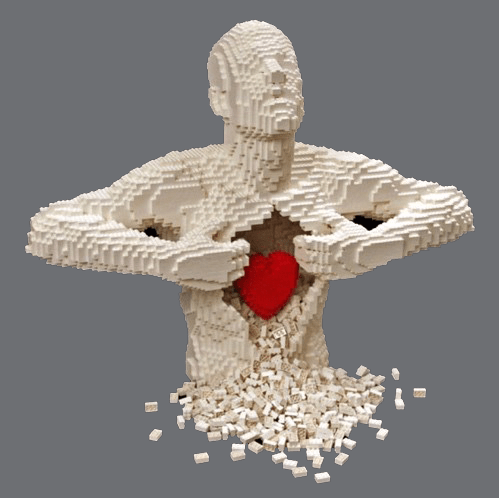The topic of this newsletter is purpose and meaning.
I understand that it might seem tone-deaf to what’s going on in the world right now.
I can assure you that I am not tone-deaf, and I do want to take a moment to take a stance for PEACE before we begin: I am firmly against all and any violence against innocent civilians, be it when perpetrated by terrorist groups or by legitimate governments. In my view, there is no justification for violence against any human, ever.
Finding meaning under those circumstances might seem futile – and yet I also believe that we owe it to those who are suffering to continue doing the good work that we do in this life – to be the best humans we can be so we can somehow do something to help.

Why did you get up this morning? Did you have a compelling reason? And will you have a compelling reason to get up again tomorrow? Next week? Next year? How about when you are 95 years old?
As a coach, people often come to me to support them in helping them make sense of their lives. They want to work on finding their purpose – usually through finding activities which will guarantee a sense of fulfillment and a profitable life. I help my clients define goals for themselves. Our coaching work is goal-driven, and one of the questions I ask in my “discovery questionnaire” at the beginning of a new coaching is: “When you are at the end of your life looking back, what do you want to see, and what regrets do you not want to have?”.
Needless to say, I was beyond excited when I discovered IKIGAI, the Japanese concept which translates to “Life-Worth”. Ikigai (生き甲斐, lit. 'a reason for being') dates back to the Heian period (between 794 to 1185!), and refers to something that gives a person a sense of purpose, a reason for living. Fast forward to March 2021 when I became a certified Joue Ta Vie Ikigai coach and started being able to incorporate this work in my coaching.
Outside of Japan, the concept of ikigai is invariably associated with the Venn diagram consisting of four overlapping circles:
1) What you love
2) What you are good at
3) What you can be paid for
4) What the world needs
At the intersection of the four circles is the word ikigai.
This visual representation aims to provide a roadmap to finding your ikigai (aka “purpose”) and suggests that you can achieve real ikigai (aka “meaning”) only by fulfilling all four elements.

Despite its persistent popularity outside of Japan, the interpretation of ikigai as a Venn diagram reduces the Japanese concept to a single monumental life goal to achieve. However, ikigai encompasses much more and is, in many ways, the opposite of that notion. Ikigai is possible without necessarily being successful in your professional life. Ikigai is not about financial freedom; it is about achieving a state of mind where one can live freely and purposefully: it is more about dedication and the meticulous pursuit of an activity than what you are already naturally good at. Many Japanese people have special skills and talents that yield little to no remuneration, but the fulfillment achieved in their craft is unparalleled. This level of mastery requires focus, process, discipline, mindfulness and attention to detail. However, achieving this level of mastery is not an insurmountable and stressful goal to achieve: on the contrary, the inner being is at peace and the intrinsic motivation to achieve this plateau of craftsmanship spikes, which in turn releases feelings of accomplishment and fulfillment (in other words dopamine and endorphin hormones – the “feel good” and “happiness” hormones). This is why many Japanese do not retire from work. They simply continue to do the work they love as long as they are in good health… and in good health they are!
Ikigai has been linked to longevity by National Geographic reporter Dan Buettner when he conducted his research on the “blue zones” – geographic areas of the world with longer life expectancy than anywhere else. Studies have shown that people who do not feel ikigai are more likely to be ummarried, unemployed, have lower educational level, be in bad or poor health, have high level of perceived mental stress, experience severe to moderate body pains and more cardiovascular diseases.
Have I convinced you yet to try to bring ikigai a bit more into your life?
Even though there is no “Venn diagram recipe” for ikigai, some have researched and written about it, and Ken Mogi’s Little Book Of Ikigai does describe it in in great detail. He actually came up with the following five useful pillars of ikigai:

Let's explore these in a bit more detail!

PILLAR 1: Start Small
Pay attention to the small details and take little steps toward your goals.
Desmond Tutu once wisely said that “there is only one way to eat an elephant: a bite at a time.” It’s pretty gross if you ask me. But what he meant by this is that everything in life that seems daunting, overwhelming, and even impossible can be accomplished gradually by taking on just a little at a time. Same with pillar 1 of ikigai: take little steps toward your goals, paying meticulous attention to small details, and be done once and for all with procrastination!
QUESTIONS TO ASK YOURSELF:
- What is a current goal you have?
- How can you break your goal into small steps?
- What is a first step that you can take today?

PILLAR 2: Release Yourself
Accepting oneself is one of the easiest, simplest, most rewarding things you can do for yourself.
The first step toward self-acceptance is to know oneself. How well do you know you? (If not, there’s a coach for that 😉) Self-awareness and consciousness are the first steps toward enlightenment. How can we accept ourselves without self-knowledge?
The second step is to have loving kindness and compassion toward oneself: we are our own worst critic, and the voice in our head is usually the meanest of all.
Try the Loving Kindness (aka “metta”) meditation if you need a little help with that.

PILLAR 3: Harmony and Sustainability
Consider those around you and be mindful of your impact on others and society.
Ikigai work is an in depth and intimate work. It’s linked to an internal dimension, yet it’s not egocentric. It’s about contribution to the world, and contribution to others: it’s about a sense of community. It’s a personal and intimate quest toward a betterment of oneself for the betterment of all.
QUESTIONS TO ASK YOURSELF:
- Are you usually/normally mindful or your personal/professional impact on society/others?
- Is it something that matters to you? What are your values around this?
- How are you monitoring that impact?
- Is it ever OK to trespass the values of harmony and sustainability? If so, under which circumstances? When is it OK to be selfish?
- What might be the impact of a majority of people not living this ikigai principle?

PILLAR 4: The Joy of Little Things
Embed small moments of happiness into your daily routine. Joy doesn’t have to be huge.
Anyone who knows me has heard me say at some point “It’s the small things in life…”. Which usually comes on the heels of someone beamingly sharing a story of gratitude or appreciation toward a small thing, or event, or encounter that just happened to them. Some examples:
- My first cup of coffee this morning at 6am as I was starting to write this newsletter was pure heaven.
- Someone let me into a traffic lane this morning without me having to fight for it – it was so peaceful.
- I just took a micro break on my deck and took these pictures of flower in our pots (neither are bigger than a dime)

QUESTIONS TO ASK YOURSELF:
- What are the small things that give you pleasure?
- Where are you focusing your attention as you move through your days?
- Will you catch the small things when they are in front of you, or might you miss them?
- How can you increase your mindfulness?
- How can you increase the pleasure you get from the small things in life?

PILLAR 5: Be in the Here and Now
Bring out your inner child by being present in the moment, instead of clinging to the past or the future.
When I was going through coach training at CTI (Coactive Training Institute) 18 years ago, we were taught about “process coaching” – which was about helping our clients process their life experiences as they were happening, instead of glossing over them. Being here and now is about not living plagued with regrets or guilt or shame in the past; or not living in the future plagued with fear, worry and anxiety. Most people don’t know how to simply stay right here right now, in the present moment, especially if the present moment is uncomfortable. And yet … there is nothing else that’s real and true than THIS moment. Right now. As you are reading this. Being in the here and now is all about mindfulness practice, which can alleviate much, or even most, of the pain of life.
There are multitudes of programs or apps that can help with increased mindfulness and meditation practices. As a Positive Intelligence Certified Coach, I can offer and guide you through a powerful 7-week life and brain changing mindfulness program.
In conclusion, ikigai points to a frame of mind whereby the subject feels that they can build a happy and active life. It is, in a sense, a barometer which reflects a person’s outlook on life in an integrated and representative way.
Ikigai gives your life a purpose, while giving you the grit to carry on.
Having ikigai can literally transform your life. You can live longer, have good health, become happier, more satisfied and less stressed. I hope I have given you motivation to work on the 5 pillars and bring a little more ikigai into your life!
JOUE TA VIE IKIGAI
The “Joue ta Vie” (Play Your Life) Ikigai Coaching is based on an introspective process and the use of playful and intuitive tools. It is very effective in supporting:
- People in search of meaning.
- Teenagers who are thinking about their orientation.
- Adults in professional retraining.
- Employees at work.
It is perfect for connecting with one’s inner child, identifying talents, recognizing one’s values, developing potential, or enriching a skills assessment. It powerfully helps to boost self-confidence and to accelerate the completion of a project.
HOW IT WORKS
- The coaching is facilitated in 2 hours.
- Cost: $399. Use code IKIGAI25 for a 25% discount as a thank you for reading my newsletter!
- The support is holistic: it treats mind and body at the same time which generates a deep sense of well-being and contentment.
- This model of spiritual coaching is based on the fundamentals of neuroscience, positive psychology, and the lesser known current of transpersonal psychology
Are you READY to find your IKIGAI?




